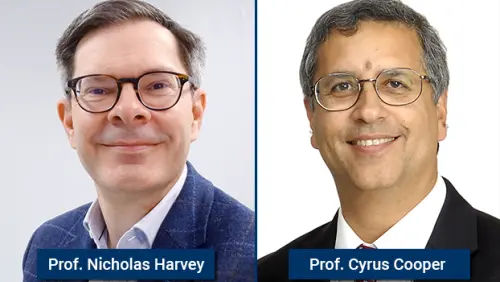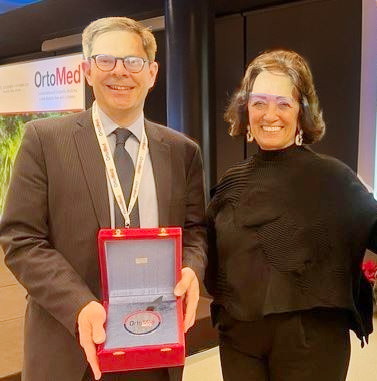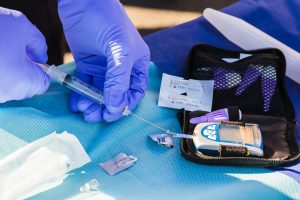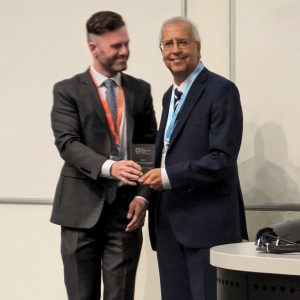[vc_row][vc_column][vc_column_text]New research from the University of Southampton has found no association between the use of calcium or vitamin D supplementation and cardiovascular events such as heart attacks.[/vc_column_text][vc_column_text]Calcium and vitamin D supplements, which usually come in the forms of tablets, are widely used in the population and have been generally viewed as relatively safe, but some researchers have previously raised concerns over potential links with cardiovascular disease.[/vc_column_text][vc_column_text]In a new study, published in the Journal of Bone and Mineral Research, investigators from the Medical Research Council Lifecourse Epidemiology Unit, University of Southampton (MRC LEU), used the internationally unique UK Biobank cohort, comprising over 500,000 men and women aged between 40 and 69 years at the start of the cohort, to explore relationships between use of calcium and/or vitamin D supplementation and the risk of cardiovascular events such as heart attacks.[/vc_column_text][vc_column_text]The analysis accounted for a wide range of other potential influences, and did not detect any statistically significant associations between use of the supplements and events such as heart attacks, hospital admission for angina, or related deaths.[/vc_column_text][vc_column_text]The results are the first in such a large cohort of both men and women, with previous studies focused mainly on women. They are also the first to investigate the issue in such a large cohort in which both the exposures and the outcomes have been defined and sampled in a uniform fashion, with information on cardiovascular outcomes and deaths obtained from linkage to Hospital Episode Statistics and ONS Death Registry data.[/vc_column_text][vc_column_text]Nicholas Harvey, Professor of Rheumatology and Clinical Epidemiology at the MRC LEU, University of Southampton, led the analysis. He said, “Calcium and vitamin D supplements are widely used in the population, and are particularly appropriate for those individuals at risk of deficiency in either nutrient. In this situation there is good evidence that they provide a modest reduction in fracture risk, although do not replace medications specifically licensed for the treatment of osteoporosis.”[/vc_column_text][vc_column_text]He added, “Whilst our current findings can never be absolutely definitive compared with those from a comprehensive randomised controlled trial, it is unlikely to be possible to undertake this sort of trial in practice, and our results provide reassuring findings with regard to cardiovascular outcomes, at least within the age range studied. Further study will be needed as this population ages, to examine whether the lack of association persists into older age.”[/vc_column_text][vc_column_text]Professor Cyrus Cooper, Director and Professor of Rheumatology at the MRC LEU, University of Southampton said, “This work forms part of a larger programme of research at the MRC LEU, University of Southampton, addressing the determinants of osteoporosis and musculoskeletal health across the lifecourse, and demonstrates the importance of working with world leading globally unique resources such as the UK Biobank.”[/vc_column_text][/vc_column][/vc_row][vc_row][vc_column][vc_column_text el_class=”reflist”]Notes to editors
- Calcium and vitamin D supplementation are not associated with risk of incident ischaemic cardiac events or death: findings from the UK Biobank cohort
Nicholas C Harvey,1,2 Stefania D’Angelo,1 Julien Paccou,1,3 Elizabeth M Curtis,1 Mark Edwards,1,6 Zahra Raisi-Estabragh,4 Karen Walker-Bone,1 Steffen E Petersen,4* Cyrus Cooper1,2,5*
Journal of Bone and Mineral Research
10.1002/jbmr.3375 - The Medical Research Council is at the forefront of scientific discovery to improve human health. Founded in 1913 to tackle tuberculosis, the MRC now invests taxpayers’ money in some of the best medical research in the world across every area of health. Thirty-two MRC-funded researchers have won Nobel prizes in a wide range of disciplines, and MRC scientists have been behind such diverse discoveries as vitamins, the structure of DNA and the link between smoking and cancer, as well as achievements such as pioneering the use of randomised controlled trials, the invention of MRI scanning, and the development of a group of antibodies used in the making of some of the most successful drugs ever developed. Today, MRC-funded scientists tackle some of the greatest health problems facing humanity in the 21st century, from the rising tide of chronic diseases associated with ageing to the threats posed by rapidly mutating micro-organisms. www.mrc.ac.uk
- The University of Southampton drives original thinking, turns knowledge into action and impact, and creates solutions to the world’s challenges. We are among the top one per cent of institutions globally. Our academics are leaders in their fields, forging links with high-profile international businesses and organisations, and inspiring a 24,000-strong community of exceptional students, from over 135 countries worldwide. Through our high-quality education, the University helps students on a journey of discovery to realise their potential and join our global network of over 200,000 alumni. www.southampton.ac.uk
- UK Biobank is a national and international health resource with unparalleled research opportunities, open to bona fide health researchers. It is enormously grateful to its 500,000 volunteer participants whose health & wellbeing it follows. This is building into a detailed resource for health research open to approved scientists from the UK & overseas, from academia & industry. www.ukbiobank.ac.uk
For further information contact:
Becky Attwood, Media Relations Officer, Unviersity of Southampton, Tel: 02380 593212, Email: r.attwood@soton.ac.uk[/vc_column_text][/vc_column][/vc_row]








